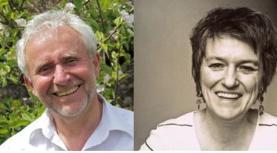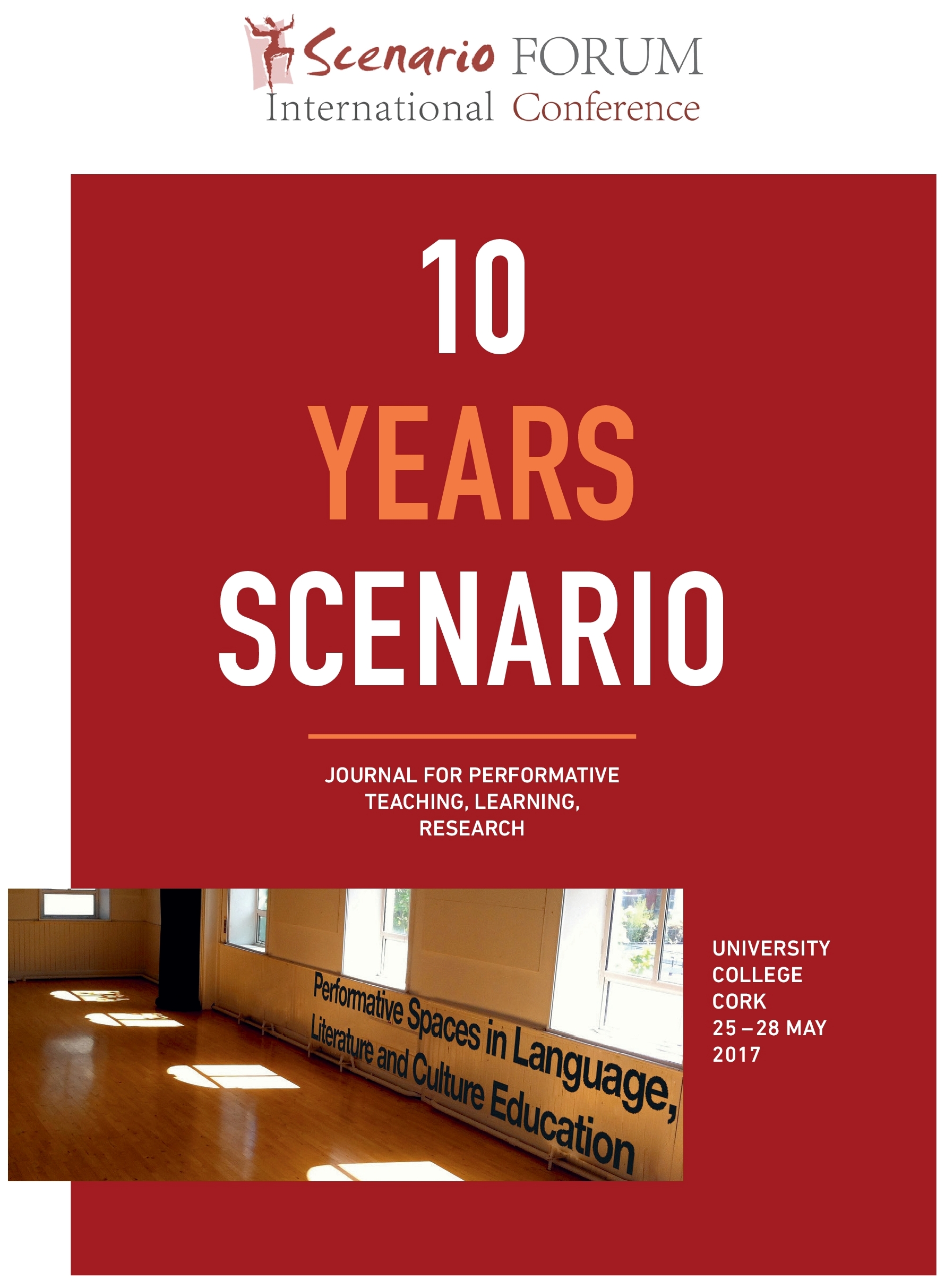
WELCOME
Dear Conference Participants,
When we hosted the first SCENARIO Forum Conference three years ago, we received enthusiastic feedback as well as numerous inquiries as to when the next one would take place. Marking the 10th year of SCENARIO Journal, the 2017 SCENARIO Forum Conference celebrates the thriving international community who have developed this work.
This community is widely represented at the conference with over a hundred speakers and workshop leaders from four continents and eighteen countries will explore the potential of performative spaces in relation to different content areas, genres, themes and approaches. We are excited about the wide range of topics as diverse as dance and music, poetry and prose, grammar and communication, interculturality, immigration and integration, diversity and human rights, embodiment, emotion, empathy and critical thinking, impact and memory, academic and artistic research.
We welcome to Cork, Ireland’s UNESCO Learning City of 2017, not only our delegates, but also keynote and plenary speakers, performers and all other participants, for four exciting days of papers, workshops, panel discussions, as well as intensive and intriguing investigations into the performative paradigm. We invite you to explore the spaces in and around the beautiful UCC campus from Devere Hall, the Drama Lab, the Glucksman Gallery and our University Theatre facilities.
SCENARIO has grown in the last few years. What started out as a journal in 2007 continues to evolve to now encompass a book series, a forum for conferences and symposia, an archive, and a correspondents initiative where people from around the world report on the state of performative teaching, learning, and research in their respective countries. We are very pleased about these developments that are also being shaped by all of you, the conference participants, who are all co-travelers on multiple paths to new pedagogical approaches informed by the performing arts.
And for this, we thank you – for your interest, courage, and enthusiasm, for your critical and discerning voices, for your presence here in Cork, at your respective institutions and in your various educational contexts, working towards a new, performative teaching, learning, and research culture.
The Organising Team
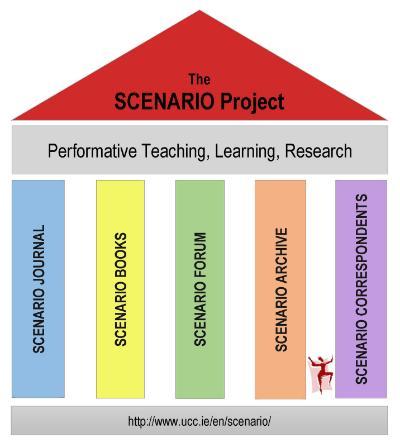
ACKNOWLEDGEMENTS
We wish to thank the following units at University College Cork for their generous assistance:
- Department of German & Department of Drama and Theatre Studies
- School of Music and Theatre
- Centre of Advanced Studies in Languages and Cultures (CASiLaC), School of Languages, Literatures and Cultures
- College of Arts, Celtic Studies and Social Sciences
- Office of the Vice-President for Teaching and Learning
- UCC Conferencing Office
We are also very grateful for additional generous support received from:
- Embassy of Austria in Ireland, Dublin
- Austrian Exchange Service
- Embassy of Germany in Ireland, Dublin
- Goethe Institute, Dublin
- German Academic Exchange Service, London
- Bord Fáilte [www.meetinireland.com]
- Cork Convention Bureau [http://www.corkconventionbureau.com/]
Special thanks also to Aoife Murphy for conference admin support, Vera Kapfenberger for designing the programme cover, Patricia and Maciek Klich for conference documentation, staff in the University Theatre for the use of facilities and expert assistance, students of German and Drama & Theatre Studies for assisting the Conference Organising Team and Presentation Brothers College, Cork, for the use of the Dan Donovan Theatre.
CONFERENCE ORGANISING TEAM
SCENARIO Journal Editors
Manfred Schewe, Susanne Even
(University College Cork, IRL; Indiana University, Bloomington, USA)
SCENARIO Journal Advisory Board members
Eucharia Donnery, Micha Fleiner, Dragan Miladinovic, Róisín O'Gorman, Erika Piazzoli
(Shonan Institute of Technology, JPN;Xiamen University, CHN; University College Cork, IRL; University College Cork, IRL; Trinity College Dublin, IRL)
SPEAKERS
We are looking forward to welcoming the following speakers:
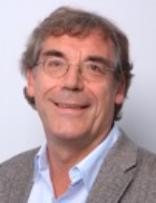
WOLFGANG HALLET
Title of Keynote: The performativity of space and performative competence
This paper intends to look at space as an educational paradigm from the perspective of spatial theories as developed in sociology and cultural geography. Most of these theories draw upon Henri Lefebvre’s contention in his work La production de l’espace (1974) that space does not exist in itself, but that it is always socially produced and permanently (re-) constituted in and through acts of social interaction. Therefore, spaces are performative in Austin’s (and Judith Butler’s) terms of performativity: They are re-iteratively made, refigured and modified in acts of use and interaction. According to such sociocultural theories, space is therefore not a physical container that is simply there to be used or that must be ‘filled’ somehow.
‘Refiguration’ as a socially productive activity (‘spacing’) must be understood rather literally since space is a result of the respective manifold interrelations between agents, objects and the specific ways in which they are arranged (Martina Löw’s concept of ‘relational space’). Moreover, ‘spacing’ is never only a physical (or: ‘real’) activity, but any space is always also imagined and symbolized while it is being used. This is why, drawing directly on Lefebvre, Edward Soja contends that spaces are always ‘real-and-imagined’, they are “simultaneously real and imagined, concrete and abstract, material and metaphorical.” (Soja 1996: 65)
‘Spacing’ is therefore also an act of imagination and signification, a semiotic act of understanding and of making meaning, and spaces have more or less conventionalized meanings that can be, and normally are, ‚read’ and decoded. This symbolic dimension constitutes the need to acquire the ‘language of space’ in cultural and social education in general and a ‘language for space’ in language learning, and in the foreign language classroom in particular. This paper will therefore also delineate the implications for ‘performing space’ and for ‘performing in space’ (spatial ‘theatricality’ sensu Fischer-Lichte) in language learning, and the role of discourse competence for the acquisition of performative competence in terms of symbolizing, negotiating and (re-)defining spatial meanings.
Wolfgang Hallet is Professor of Teaching English as a Foreign Language and member of the Executive Board of the International Graduate Centre for the Study of Culture and Head of its Teaching Centre at Justus Liebig University Giessen, Germany. He is co-editor of a series of handbooks on teaching literature and culture, of a handbook series on teaching foreign languages, of the Giessen Contributions to Foreign Language Research (Tübingen: Narr), the Giessen Contributions to the Study of Culture (Trier: WVT), of the international book series Concepts for the Study of Culture (CSC; Berlin & New York: de Gruyter) and a major German bi-monthly journal on Teaching English as a Foreign Language (Der fremdsprachliche Unterricht Englisch).
In foreign language teaching his research and publications, including several monographs, comprise study of culture-based theories of teaching culture, literature-related competencies and, most recently, genre learning. His concept of performative competence draws upon Victor Turner’s anthropological contention that generically, i.e. structurally and thematically, social interaction (’social drama’) is closely intertwined with the stage drama, and vice versa (see SCENARIO issue http:// research.ucc.ie/scenario/2010/01/hallet/02/de). Together with Carola Surkamp he recently edited a volume on Teaching Drama and Drama Pedagogy (2015, Trier: WVT). He has also researched and published on the spatial turn in literary studies, on the constitution of space in literary texts and on space and language learning.
Staff Page: http://www.uni-giessen.de/cms/hallet
Contact details: Justus Liebig University Giessen, Department of English, Otto-Behaghel-Strasse 10 B, D-34395 Giessen
E-mail: Wolfgang.Hallet@anglistik.uni-giessen.de; Phone: +49 641 99 30 300
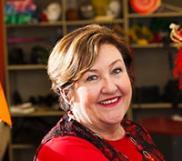
MADONNA STINSON
Title of Keynote: Hope, pedagogies, and travelling towards shared understandings
The diversity of papers, presentations and workshops at this conference attests to the range of epistemologies that we, teaching-artists and researchers, hold as we work to bridge contexts within the areas of drama and second, and additional, language learning. In this presentation I consider the moral imperative of our work as teachers of second and additional languages. In doing so I draw Paolo Freire’s Pedagogy of Hope, Maxine Greene’s aesthetics, and Elliot Eisner’s theories of arts and learning.
I share learnings that have emerged from previous and current research in Singapore and Australia, together with the work of colleagues internationally, who use process drama and devising theatre as pedagogical frames within language teaching. From these reports of recent research I propose pedagogical characteristics and qualities that contribute positively to language learning. I envisage such pedagogical stances as hope-generating processes, which encourage learners to imagine and enact futures that contain possibilities beyond their current, often constraining, contexts and circumstances.
The presentation goes on to consider methodological implications of dual-handed research into drama and language teaching and learning. By dual-handed, I mean working as artist and teacher concurrently as we balance both artistry and teaching in the learning process. In conclusion I consider the challenges and possibilities of researching practice in ways that allow for nuanced understandings to emerge and to be communicated within and beyond the field.
Madonna Stinson is a Senior Lecturer in the Department of Education, Griffith University, Brisbane, Australia. She is an experienced teacher and teacher educator, having worked across all sectors of schooling. She is a member of the internationally renowned Applied Theatre team at Griffith University, and is currently working on research projects that encompass age-effective pedagogies in the early years, and arts, community and curriculum partnerships in a Brisbane school with a high proportion of refugee students. She has written extensively on drama and education and is in demand as a keynote speaker and masterclass workshop leader. Madonna was awarded a Life Membership of Drama Queensland in 2014, for her contribution to drama education. She has worked in teacher education in Singapore, UK and Australia.
As Director of Publications for Drama Australia, she is Managing Editor of NJ: the Drama Australia journal (a peer-reviewed journal published by Taylor and Francis), the Drama Australia Research Monographs, and on-line publication materials. In addition she is a member of the editorial boards of RIDE: the journal of Applied Theatre and Performance; DATE-Asia; and Pedagogies.
Staff Page:https://experts.griffith.edu.au/academic/m.stinson
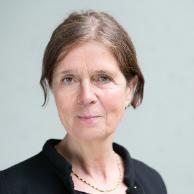
ULRIKE HENTSCHEL
Title of Plenary Paper (in German):
Theaterpädagogik in Deutschland: Entwicklungen, Prinzipien und Perspektiven
Die Theaterpädagogik gibt es nicht. Wie in anderen anwendungsorientierten Disziplinen existieren auch innerhalb der Theaterpädagogik verschiedene Praktiken, Arbeitsfelder und theoretische Ansätze nebeneinander. Theorien und Praktiken der Theaterpädagogik sind selbstverständlich abhängig von der jeweils historischen und kulturellen Entwicklung und unterscheiden sich, je nachdem welche Vorstellungen vom Subjekt von der Kunst des Theaters und vom Verhältnis von Pädagogik und Theatern zugrunde gelegt werden.
Ich möchte in meinem Vortrag zunächst einen kurzen Blick auf die jüngere historische Entwicklung der Theaterpädagogik in Deutschland werfen. In einem zweiten Schritt werde ich in systematischer Absicht nach unterschiedlichen Formen der Gestaltung des Verhältnisses von Theater und Pädagogik und der ihnen entsprechenden Praxis fragen. Drittens geht es mir darum einige aktuelle Entwicklungen aufzuzeigen und zu fragen, welche Perspektiven sich daraus für die (interkulturelle) Verständigung über Theaterpädagogik ergeben könnten.
Ulrike Hentschel studierte Erziehungswissenschaft, Sozialwissenschaften und Theaterpädagogik in Bochum und Berlin. Seit 2001 ist sie Professorin für Theaterpädagogik und Darstellendes Spiel an der Universität der Künste Berlin. Sie ist Mitherausgeberin der „Zeitschrift für Theaterpädagogik. Korrespondenzen“. Buchpublikationen: Theaterspielen als ästhetische Bildung. 3. Auflage, Milow 2010, gemeinsam mit Reimar Stielow: Fragen. Jahrbuch 5 der Hochschule für Bildende Künste Braunschweig. Köln 2002; gemeinsam mit Hans-Martin Ritter: Entwicklungen und Perspektiven der Spiel- und Theaterpädagogik. Milow 2003; gemeinsam mit Marianne Streisand/ Bernd Ruping/ Andreas Poppe: Generationen im Gespräch. Archäologie der Theaterpädagogik I. Milow 2005; gemeinsam mit Gundel Mattenklott: Erzählen. Narrative Spuren in den Künsten. Milow 2009; gemeinsam mit Ursula Brandstätter und Ana Dimke: Szenenwechsel. Vermittlung von Bildender Kunst, Musik und Theater. Milow 2010. Forschungsschwerpunkte: Ästhetische Bildung, zeitgenössisches Theater und Theaterpädagogik, Theater und Schule, Geschichte der Theaterpädagogik.
PERFORMANCES
ARTIG
Conference delegates will have an opportunity to see ImproTheatre.
We are looking forward to welcoming VIENNA-based Improtheatre group ARTIG back to Cork.
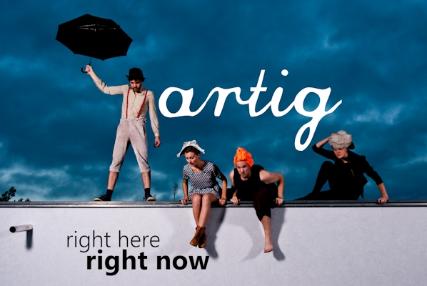
RIGHT HERE - RIGHT NOW!
Just imagine you can be whoever you want to be, you can live wherever you want to live and every single moment is the beginning of a great adventure! Welcome to the exciting world of improvisational theatre.
Improvisational theatre, also known as improv, is a form of theatre where all of what is performed is created at the moment. The dialogue, the action, the story and the characters are created collaboratively by the players or in interaction between audience and players. The three performers, Lino Kleingarn and Alexander Riedmüller, as members of the Viennese theatre collective „artig“, and their guest musician David Füllekruss will show you what spontaneity really means! More information:www.artiges.org and www.facebook.com/artig.impro
GAITKRASH
Furthermore Cork-based theatre company GAITKRASH, in association with Drama & Theatre Studies, UCC invites conference delegates to a work-in-progress sharing of a stage adaptation of Marlen Haushofer's Killing Stella (Wir töten Stella, 1958).
Killing Stella is the latest collaborative piece from GAITKRASH theatre company, known for their experimental performance work at the intersection between sound, image and text. Anna, who perceives herself to be trapped in an oppressive, patriarchal and hierarchical world, confesses to her role in colluding in the abuse of Stella, a young woman she takes into her home. The story is told through a tapestry of choreography, musical composition and text. A stage adaptation of Marlen Haushofer’s novella Wir töten Stella (Austria, 1958), the piece makes a bold statement about the dangers of collusion in domestic settings and exposes the superficiality of idealized versions of home and family.
The performance will be followed by a 30-minute Q and A with the team and the audience.
Collaborative Team:
Bernadette Cronin: performance/translation/adaptation (GAITKRASH/UCC)
Eimear Reidy: cello/musical composition/adaptation (freelance artist)
Marie Kelly: dramaturgy (UCC/freelance theatre practitioner and casting director)
Regina Crowley: artistic direction (GAITKRASH/CIT)
Mick O’Shea: design consultancy (GAITKRASH/Domestic Godless/The Quiet Club)
Inma Pavon: photography/choreography
Patricia Klich: videography (freelance artist)
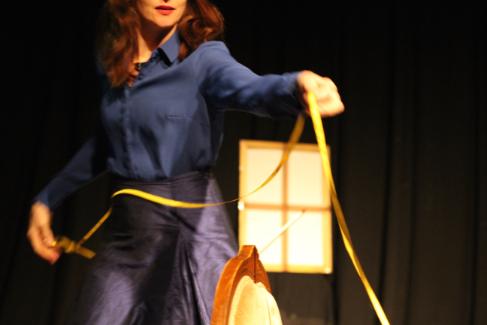
Bernadette Cronin
A Brief History of Metaphysics - Solo Performance by John Crutchfield
This is an original, movement-based solo performance which premiered as part of the 2012 Asheville Fringe Arts Festival (in Asheville, North Carolina, USA), but which has not yet had a European premiere. Working in the physical comedy tradition of Bustor Keaton and other performing artists of the vaudeville and silent film era, the piece uses the motif of a student sitting at an institutional “desk-chair” to explore the contentious relationship between body, mind, language and materiality. The performance lasts approximately fifteen minutes. Although the piece makes no propositional claims about the themes it raises, it could serve as an entertaining catalyst for the discussion of those themes in relation to performative foreign language teaching and learning.
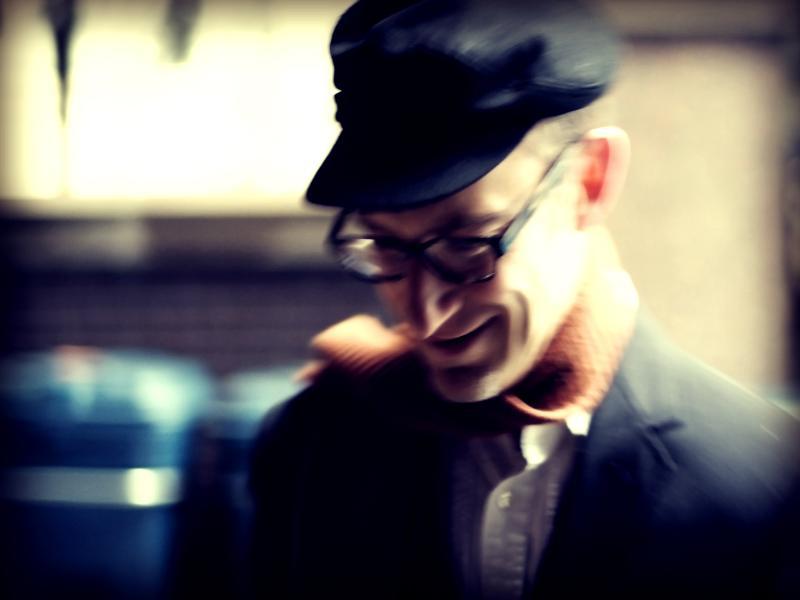 John Crutchfield
John Crutchfield
Spurensuche
At the beginning of the school year 2015/2016, 35 students from the Ernst-Mach Grammar School and Haar Comprehensive School near Munich, went back in time on a trip into the dark days of National Socialism in their hometown. The goal of the journey was to investigate the atrocities committed at that time, whilst also considering their own behavior from a contemporary perspective and was encapsulated in the question:
What sort of person do you want to be?
On the basis of on-location enquiries, appraisal of official historical documents, conversations with survivors and, as a result of discussions within the students’ own familial discourse, a documentary performance emerged. This consisted of almost exclusively of original quotations from that time.
In the chronology of the historical documentation of the Nazi period, the events that took place in Haar include details of the fate of various victims of euthanasia. An important feature of the performance is due to its close regional association with the Healing- and Care-Center Eglfing-Haar, where many of the crimes were committed.
This play looks, in different contexts, at the question of who and what was worthy of continuing to live and the audience is confronted in an active way with these issues. The members of the public, in the framework of very special staging, are continually confronted with new situations, which demand thought, consideration and conclusion.
SPURENSUCHE represents a theatrical commemoration of the victims of the Nazi euthanasia crimes, and has been awarded a prize for original on-stage tribute.
On the 25th of January 2017, at the invitation of the Government Secretary for the Disabled in Germany, the play was performed in the Kleisthaus in Berlin, the headquarters of that institution, this day being the National Remembrance Day for all victims of Nazi crimes.
Direction: Thomas Ritter and Farina Simbeck
Actors: 35 from the Ernst-Mach Grammar and Haar Comprehensive School
Lighting, Staging and all other technical aspects: 10 students from Ernst-Mach Grammar School
Sponsorship: BÜRGERSTIFTUNG HAAR
PANEL DISCUSSIONS
PANEL DISCUSSIONS
PANEL I (Thursday 25 May, 17.00 – Devere Hall)
Towards the creation of (more) performative spaces in education
Perspectives from Architecture (Sarah Mulrooney, School of Architecture, UCC/CIT), Dance (Maria Sinnecker, Dance Theatre Project Cork), Drama and Theatre Studies (Roisin O’Gorman, UCC), Education (Peadar Donohoe (Cyclone Rep Theatre Company/CIT Cork School of Music), Music (Triona Ni Shiochain, UCC), Visual Art (Tadhg Crowley, UCC, Glucksman Gallery,) – Chair: Manfred Schewe, UCC
PANEL II (Saturday 27 May, 19.00 – Room 3, River Lee Hotel)
Performative Arts and Pedagogy: Towards the Development of an International Glossary
On the Panel: John Crutchfield (Freie Universität, Berlin), Susanne Even (Indiana University, Bloomington) Erika Piazzoli (Trinity College Dublin), Madonna Stinson (Griffith University, Brisbane), Gustave Weltsek (Indiana University, Bloomington) – Chair: Manfred Schewe, UCC
ABSTRACTS
BIODATA
REGISTRATION
Please note that you can avail of different pay options; the conference fee includes teas/coffees, lunches and also performative events.
Further details regarding credit card payment are available at:
http://www.uccconferencing.ie/product/performative-spaces-in-language-literature-and-culture-education-2nd-international-scenario-forum-conference-marking-10-years-of-scenario-journal/
ACCOMMODATION
We advise that you book your accommodation in Cork as soon as possible. For accommodation near the University Campus
Lancaster Lodge [http://www.lancasterlodge.com/]
Lancaster Quay Western Road, Cork
Tel. +353 21 425 11 25
THE RIVER LEE [https://www.doylecollection.com/hotels/the-river-lee-hotel]
Western Road, Cork
By Phone: +353 21 425 2700
Anam Cara B&B [http://www.guesthousescork.com/check-reserve.html]
31 Palace View Western Rd, Cork
Tel. 00353858645216
Audley House [http://www.audleyhousecork.com/]
Cork City B&B, Western Road, Cork
Tel: +353 (0)21 4274292
Garnish House [http://www.garnish.ie/]
Western Road, Cork City
Tel. +353 (0)21 4275111
Shandon Bells B&B [http://www.shandonbells.com/?gc=welcome]
Western Road, Cork
Tel. +353 (0)21 4276242
Fernroyd House [https://www.fernroydhouse.com/#/view0]
Crawford House [http://www.crawfordhouse.ie/]
Western Road, Cork
Tel: +353 (0)21 427 9000
Blue Dolphin House B&B Accommodation [http://www.bluedolphin.ie]
3 College View Terrace,
Western Road (Opposite UCC), Cork City
Tel: +353 87 6489284
Redclyffe House [http://www.redclyffe.com/]
Western Road, Cork
Tel. +353 214273220
Acton Lodge [http://www.actonlodgebnb.com/]
Western Road, Cork City
Tel. 00353214344161
The Kingsley [http://www.thekingsley.ie/#]
Victoria Cross, Cork
Tel. +353(0) 21 480 0500
Achill Guest House [http://www.achillhouse.com/]
Western Road, Cork City
Tel. +353 (0)21 4279447
Blarney Stone [http://www.blarneystoneguesthouse.com/]
Western Road, Cork City
Tel. +353 (0)21-427-0083
4 O'Donovan Rossa Rd, The Lough, Cork
Tel. +353 21 4271460
You will find further useful tips on the following University Website:
TRAVEL ARRANGEMENTS / DIRECTIONS
** Please note: Some Airlines currently seem to offer special deals **
UCC is located in the western part of Cork city, 1 km from the city centre. The main parts of UCC’s campus are along Western Road and College Road. Please note that car parking facilities at UCC are limited.
Please click here for a UCC campus map (via google)
BY FOOT (OR BIKE)
From the city centre (Patrick Street/Grand Parade), take Washington Street to the west. Pass the old Court House (on your right) and later the River Lee Hotel (on your left). At the next traffic lights, enter the UCC College Gates.
- To walk from the city centre to UCC takes 15-20 minutes.
BY BUS
Cork Bus Station is located at Parnell Place in the city centre. The bus station is served by all Bus Eireann local and intercity services.
- To get to UCC, use city buses No 205 (CIT/Rossa Avenue) or No 208 (Bishopstown) from the bus station or at nearby St Patrick Street. The bus stop code for UCC (College Road) is 241741. Bus Routes Serving UCC (98kB)
- Also see Train and Bus to UCC (40kB) map or the National Journey Planner.
BY PLANE
Cork Airport is 8 km south of Cork city centre (Airport to UCC, 131kB). There are several flights a day from London-Heathrow or Amsterdam (both AerLingus) and London Stanstead or Gatwick (RyanAir). Note also direct flights to Cork from Munich, Paris, Barcelona and other European cities. For a full list of scheduled flights to Cork click here.
- Bus connections to/from the Cork airport are provided by Bus Eireann (route No 226 to Cork Bus Station).
- A taxi journey to UCC will take 10–20 minutes and will cost about €12–18.
Dublin Airport is Ireland's biggest airport. It offers a wider range of direct flight connections, such as Berlin - Dublin. There is a convenient and hourly bus connection from Dublin Airport directly to Cork city centre, offered by Aircoach. Buses leave directly from Dublin Airport. Tickets can be purchased at the bus station, but are cheaper if booked online. An alternative to Aircoach is gobus.ie. The commute takes about 3h.
Kerry Airport offers a direct flight connection to Frankfurt-Hahn. You may also wish to check flights from various European cities to Shannon Airport.
For connections between Kerry Airport and Cork City or Shannon Airport and Cork City please check the website of Bus Eireann
BY TRAIN
- Train services by Iarnród Éireann (Irish Rail) to Cork stop at Kent Station.
- Hourly intercity services from Dublin Heuston to Cork Kent Station (2.5-3 hours)
- City bus No 205 services operate between Kent Station and UCC
- For details, see www.irishrail.ie
- Taxis from the train station to UCC cost about €10.
- See the Train and Bus to UCC (40kB) map.
BY CAR
- take Washington Street/Western Road towards the west
- pass the River Lee Hotel (on your left)
- at the next traffic lights, turn left
- drive up O’Donovan’s Road and turn right on to College Road. UCC’s visitor car park is immediately on your left (entrance from Perrott Avenue)
- UCC’s main vehicle entrance is 200m on your right
A second visitor car park can be accessed by continuing straight along Western Road to the next traffic lights (Gaol Cross) and turning left. Perrot’s Inch car park is 50m on your left, before the small bridge.
- From Limerick (N20)
- Follow the N20 into Cork until you cross the River Lee (Cork Opera House is in front of you)
- Turn right onto the quays and pass two more bridges to your right (You’ll see the Gate Cinema on your left)
- Take the first road to the left (Grattan Street)
- At the third traffic lights turn right into Washington Street.
- For all other routes
From the South Ring Road (N40) to Wilton/Sarsfield Road Roundabout, follow signs for Cork University Hospital/City Centre.
- Pass the Wilton roundabout, exiting at Wilton Road.
- Turn right at the next traffic lights (Dennehy’s Cross) and keep left at the next roundabout for College Road.
- For Western Road continue down Wilton Road, follow the right bend and cross the bridge. The UCC Western Gateway Building is on your right. At Gaol Cross turn right, Perrott’s Inch car park is on your left.
Cork City and Main Approach Routes (66kB)
CALL FOR PAPERS
Call for Papers
Performative Spaces in Language, Literature and Culture Education
2nd International SCENARIO Forum Conference marking
10 Years SCENARIO – Journal for Performative Teaching, Learning, Research
University College Cork, Ireland – May 25-28, 2017
The 2017 SCENARIO Forum conference responds to increasing signs of a performative shift in education and explores potential PERFORMATIVE SPACES in language, literature and culture-related pedagogical contexts. We invite contributions with a focus on (but not limited to) the following topics:
- Embodied spaces. How can the role of the body be accentuated more as an integral part of the learning process? What effects does embodiment have on learning outcomes?
- Physical spaces. What are the challenges and possibilities of existing physical spaces (classrooms/seminar rooms/lecture halls etc.) and how can performative teaching approaches impact and possibly transform those spaces?
- Mental spaces. What new spaces in the mind emerge from working performatively in education? How can those spaces be perceived, described, and reflected upon?
- Empty spaces. Which specific areas in education could particularly benefit from performative approaches to teaching and learning? If “empty space” is “any space in which theatre takes place” (Peter Brook), how can empty spaces become rooms for artistic/aesthetic experiences in language, literature, and culture education?
- Intercultural spaces. How can different cultures, languages and language learning backgrounds be productively integrated into performative teaching and learning? To what extent do performative approaches go beyond existing practice in the area of intercultural education?
- Curricular spaces. In what way have performative teaching and learning cultures already shaped existent curricula? What are the desiderata?
- Research spaces. What gaps exist between theoretical considerations and practical applications of performative teaching and learning, and how can these gaps become viable spaces for performative research? In what ways has research into performative teaching and learning already made an impact on research methodologies? How can performative teaching and learning be observed, codified, and/or assessed?
- Definitional spaces: What terminological challenges and transcultural considerations need to be focused on in the development of an international glossary of terms?
- Visionary spaces. After 10 years of SCENARIO: To what extent has the way towards a performative teaching and learning culture been paved? What has been achieved in particular cultural contexts? What developments are desirable/expected over the next ten years?
We welcome contributions from teachers, scholars, as well as artists and practitioners in related arts-based disciplines and professional fields of practice, including Education, Drama and Theatre, Film/ New Media, Music, Dance, Visual Art. The organisers are open to a variety of presentational forms, including 25-minute papers, 90-minute workshops, short films, and performance pieces.
Please send your proposal (max. 300 words in English or German) together with a short bio (max. 50 words) by January 31, 2017 to scenario@ucc.ie – to register for the conference click here.
Prospective contributors will be informed as soon as possible, by February 15, 2017 at the latest. Regularly updated information, including conference registration, can be accessed at http://www.ucc.ie/en/scenario/scenarioforum/scenarioforum-conference2017/.
Selected papers will be published in SCENARIO Journal (http://scenario.ucc.ie) and/or the SCENARIO Book Series (http://www.ucc.ie/en/scenario/scenariobooks/).
The conference is organised by the Department of German, University College Cork, in close collaboration with the CASiLaC research cluster Culture as Performance – Performance as Culture in UCC’s School of Languages, Literatures and Cultures and the Centre for Interdisciplinary Research in Performance Practices.
Organising Team: Eucharia Donnery (Shonan Institute of Technology, Japan), Susanne Even (Indiana University, Bloomington, USA), Micha Fleiner (Xiamen University, China), Dragan Miladinovic (University College Cork), Roisin O'Gorman (University College Cork), Erika Piazzoli (Trinity College Dublin), Manfred Schewe (University College Cork).
SCENARIO
Department of German & Department of Theatre – University College Cork
Contact us
Scenario Editorial Office, Department of German, Alfred O'Rahilly Building, Main Campus, University College Cork,


